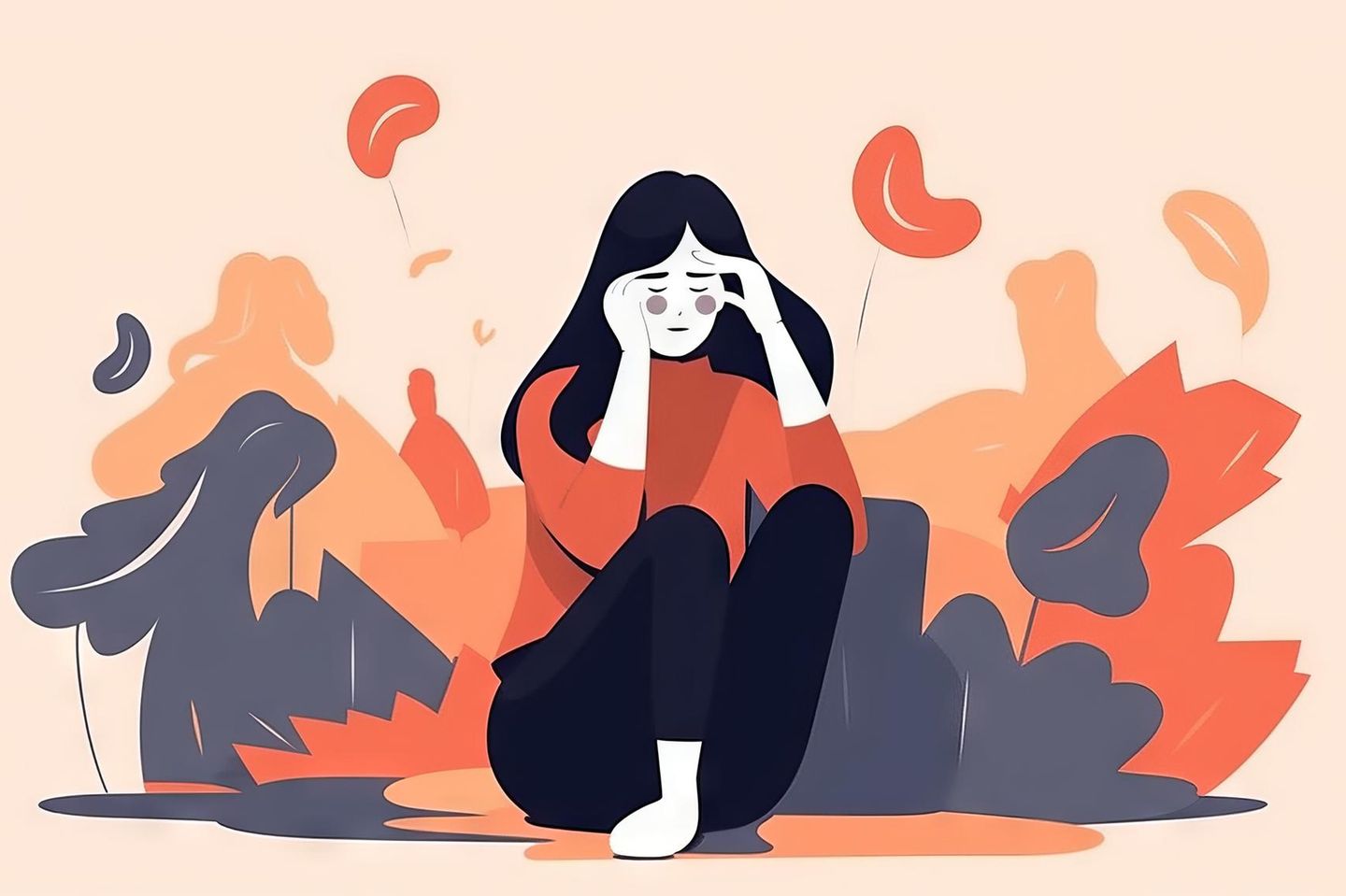“It’s all too much for me”
Why distancing yourself from other people’s problems can be unhealthy
© Elle Arden / Adobe Stock
Carrying out and dealing with other people’s problems alongside your own life seems impossible and can quickly feel like too much. However, turning away from stressful and stressful people is apparently not always the healthiest way, as an international study suggests.
It hurts to see other people suffering. Those affected by wars, Crime, natural disasters, hunger and poverty that we know about from media reports. The people we meet on the street or on the train and who ask us for change to buy something to eat. And the people around us who suddenly can no longer live without getting drunk every day. Who are dominated by their fears and are therefore no longer able to listen or go to the door.
Our opportunities to help other people are limited, in many cases almost infinitesimal. That’s why it seems obvious, understandable and excusable if we admit to a certain degree of ignorance. When we separate ourselves and distance ourselves. To protect ourselves from the pain and dejection that our compassion brings. After all, we still have our own problems to deal with.
Study: Fear of compassion could be unhealthy
One study from the University of Coimbra in Portugal under the direction of psychologist Marcela Matos offers reason to doubt the demarcation strategy or at least to look at how we deal with other people’s suffering and problems in a more differentiated way than we sometimes do. The study took place in 2020 during the corona pandemic and around 4,000 test subjects from different countries took part. Using an online survey, the researchers examined the connection between attitudes towards compassion and general mental health and found: People who showed fear of compassion and were less accepting of it were more likely to experience anxiety, depressive episodes and severe stress reactions during the pandemic than those who did not show reservations about compassion.
The result of this study is an interesting observation in itself, but alone does not necessarily say anything about the connection between the use of compassion and psychological resilience – for example, it could be that people who are more unstable in terms of health feel a higher need to protect themselves and are therefore more self-conscious about compassion. However, there are other studies on this topic that give researchers reason to believe that another connection is more likely: That compassion has a positive impact on the mental health of the person who allows and feels it.
So has one neurological examination show that training compassion activates our parasympathetic nervous system, which, in simple terms, is responsible for helping us recover from stress, calm down and relax. “Compassion is the motivation to be attentive and sensitive to suffering,” “Greater Good Magazine” quotes Marcela Matos. “The activation of this motivation is linked to very important physiological regulators of our own well-being.”
Healthy boundaries: Recognize boundaries, don’t draw them
Finding an appropriate way to deal with suffering and problems – both your own and those of other people – is certainly not always easy or self-evident. We cannot think from morning to night about all the people who are unwell and feel sad and depressed in our connection with them. Not to the people whose names we don’t know, and not to the people without whom we can’t imagine life. On the other hand, we seem to be doing neither our fellow human beings nor ourselves any favors when we deliberately and preemptively avert our gaze from them and suppress our compassion for them. And the very fact that we can feel compassion suggests that this feeling is meaningful and justified, just like joy, fear, disgust, or anger. What now?
Maybe we can find an appropriate and manageable level of compassion for ourselves by learning to trust – that we can sense when it’s too much for us and that we don’t have to fear that it might become too much. After all, as humans we are able to live with each other, to overcome problems together, to share and feel our suffering. So, in theory, we must have all the necessary means and skills to cope with it without breaking down. Sometimes it seems difficult for us to trust these means, so when in doubt we prefer not to test them at all. But maybe we could do this more often. Because sometimes a healthy demarcation does not consist in drawing boundaries, but in recognizing them.
Sources used: greatergood.berkeley.edu, nature.com
